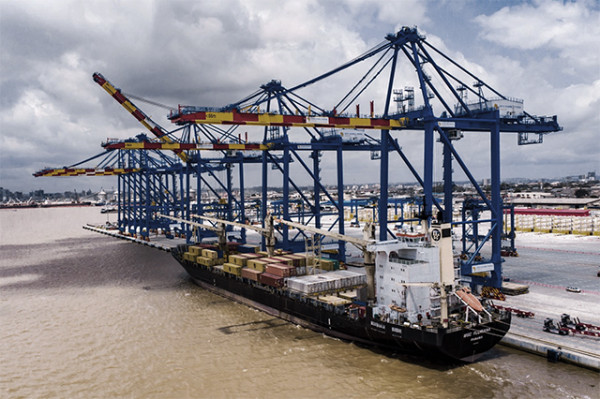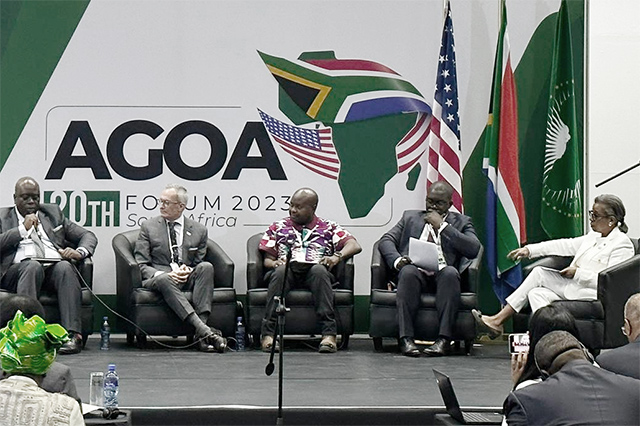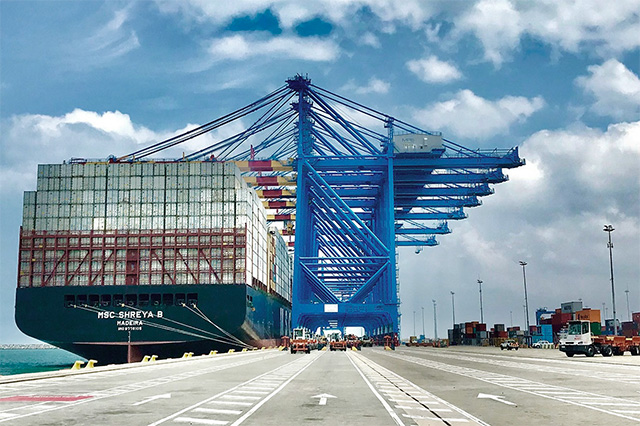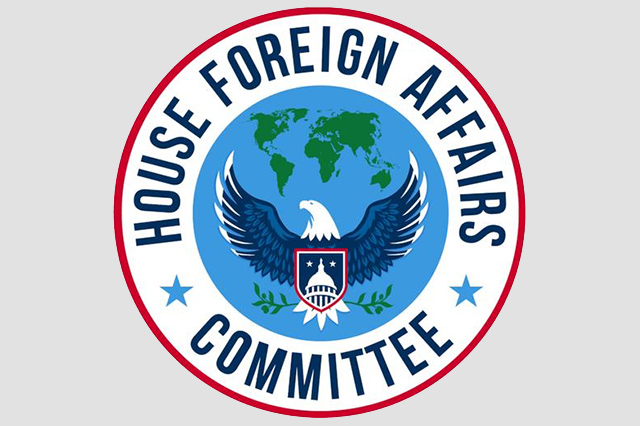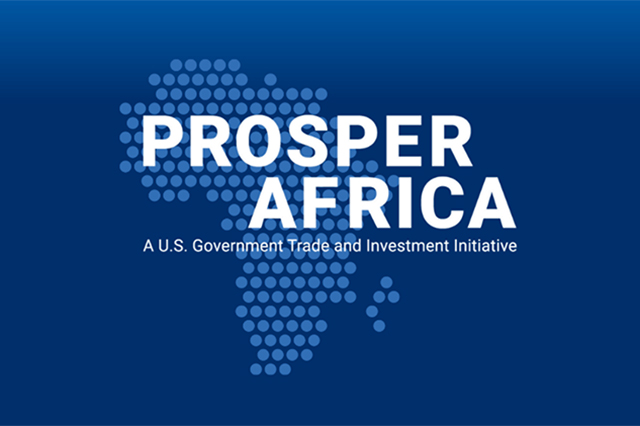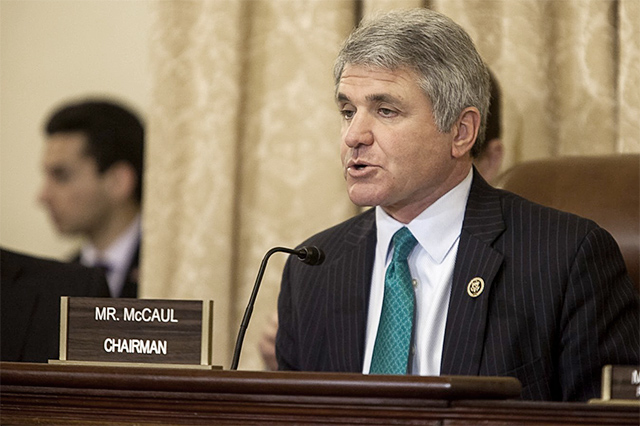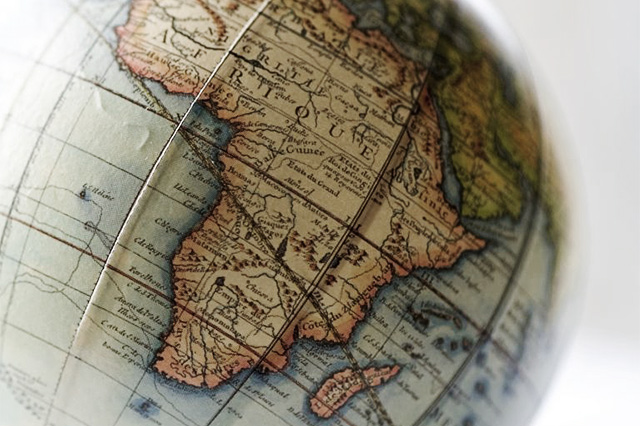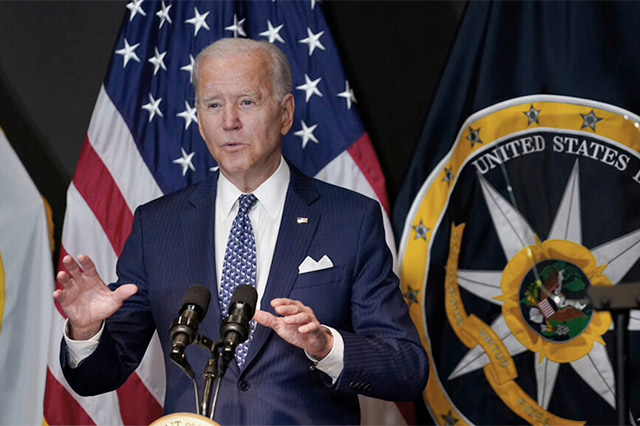Could supply chain security take US firms to Africa?
Beginning in August, China will levy export controls on two critical minerals: gallium and geranium. These metals are essential to semiconductor technology and restricting access to them marks Beijing’s latest volley in its strategic power competition with Washington and will significantly disrupt U.S. and Taiwanese chip manufacturers.
The global mineral supply chain is already narrow and China has an overwhelming lead with respect to rare earth metal extraction and processing. This market dominance enables Beijing to manipulate access seemingly at-will. Beyond minerals, China’s status as the world’s top manufacturer also makes raw material building blocks like plastics, chemicals, and agriculture products vulnerable to Beijing’s geopolitical ambitions.
For U.S. industry dependent upon reliable supply chains, this vulnerability underscores the need to pursue a pivot. Decoupling is unrealistic, but diversifying supply is a necessary long-term strategy. For American interests pursuing new, secure supply chains, Africa represents a key opportunity.
Gaining attention, the Africa market affords a spectrum of trade, investment, and sourcing opportunities across fifty distinct markets. The continent’s population of more than one billion is the youngest and most rapidly growing in the world, and the International Monetary Fund suggests that eight of the world’s fifteen fastest growing markets are in Africa, including Cote D’Ivoire, the Democratic Republic of the Congo, Rwanda, and Senegal.
For some, Africa’s reputation begins with its humanitarian challenges. But today the continent flexes attractive emerging markets that have leveraged development assistance to facilitate serious economic progress. Africa is unambiguously rich in raw materials, oil and gas, and agriculture potential. Moreover, Africa demonstrates enormous workforce promise, innovation clusters, and a rising middle class, suggesting that beyond supply chain security, U.S. industry can build lasting, mutually beneficial relationships through commerce.
Today, Nigeria, Ghana, and South Africa are reliable investment destinations, plus Morocco which holds a free trade agreement with the United States, and Kenya which is receiving similar attention from the U.S. Trade Representative's Office. Cote D’Ivoire, Tanzania, and Zambia are adopting fundamental reforms such as advancing the rule of law, firming up rights protection, reducing trade barriers, and promoting fiscal management to attract transatlantic partnerships and foreign direct investment.
America’s peers recognize the importance of trade and investment relationships with Africa. The European Union and China have both made strategic investments, and, albeit by very different approaches, established durable and diverse supply chains across the continent.
Europe, for example, exchanges more than $250 billion with Africa every year, nearly five times more than the American trade relationship. With more than 20 free trade agreements across the continent, the European Commission has made Africa a “Global Gateway” priority and the chief target of the block’s energy investment agenda.
China also has a well-documented presence on the continent, driven primarily by the controversial One Belt One Road initiative. China stands as the largest trading partner for many African states, and its active engagement creates competition, particularly in areas such as mineral rights, port access, and government procurements.
For the American firms also interested in engaging Africa as a supply chain partner, support exists for their first steps.
During the past 20 years, U.S. government efforts have encouraged safer trade and investment conditions, and current initiatives such as Prosper Africa and Power Africa align American industry with tools like risk insurance, business intelligence, and matchmaking. The Africa Growth and Opportunity Act also adds import provisions, and the African Continental Free Trade Area’s further facilitates supply avenues and promotes trade through tariff removal between African states, regional cooperation, common rules, and regulatory reform.
Like any emerging market, Africa is not without risk. Undeniably complex, the varying challenges found in some countries include rapidly changing governance structures, political instability, stubborn trade barriers, and persistent corruption. Capital moves slowly on the continent, and results are less predictable. Flight scarcity, limited shipping routes, language barriers, and time differences also contribute to a difficult risk profile. Major and minor alike, these factors affect the calculus for market exploration.
The appropriate approach begins with recognizing every country presents a unique profile and determines reasonable expectations and timelines. Familiarity with Africa’s nuances is key, as is travel to the continent. Starting small, for example, through pilot projects or limited asset investments, can hedge risk. Adding Africa expertise to corporate teams could create conversations, identify potential obstacles, and preach patience.
Though Africa may not be an outright solution to today’s supply chain challenges, the continent deserves much more serious consideration from forward-thinking entrepreneurs who understand the constraints of a “single basket” approach. The case for Africa as a U.S. industry partner is stronger than ever, and for those bold enough to navigate Africa’s complexities the opportunity for two-way commercial relationships with a market positioned for growth is clear.
Ned Rauch-Mannino is a visiting fellow for the Douglas and Sarah Allison Center for Foreign Policy Studies at The Heritage Foundation and a former senior official with the U.S. Department of Commerce and U.S. Agency for International Development and served as co-chair for the White House’s Prosper Africa initiative.


